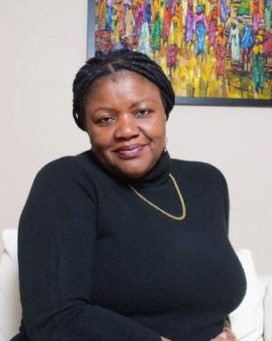
by Ifeoma Chinwuba
Thursday 5 September 2024
The Middle Daughter. Author: Chika Unigwe, Masobe, 2023 ; 325 pp.
The Middle Daughter recounts the travails of an Igbo girl-child, sandwiched between two female siblings. In a society that places premium on the male child, the parents dote on the trifecta and spare no effort in giving them the good life. The eldest, Udodi is soon sent off to the U.S. for further studies. The middle girl, Nani, is catapulted to prominence, but soon falls into terrible hands and forced into a loveless marriage. Emma Bovary?
The Middle Daughter (TMD) is about domestic violence, à la Colleen Hoover’s It Ends With Us, lower class version. It is an aborted psychological trauma novel. Unigwe’s unrelenting focus on the protagonist, to the detriment of other characters, like Nani’s nemesis, Ephraim, telegraphs an inchoate mastery of her craft, or a reluctance to go the whole hog to the narrative’s logical end. From this perspective, I find the end contrived, mechanical, a cop-out, or at best, a hasty end.
Each chapter of TMD is dedicated to a character, whose point-of-view (POV), prevails therein. At the initial stages, an equitable distribution of these POVs is discernible: Nani, Udodi (The Chorus), Ephraim and Ugo. Howbeit, midway, only Nani’s voice holds sway. What is happening to her co-travellers? The reader is left in the dark.
In the tradition of psychological trauma novels, (think Stephen King’s Misery, F. MacFadden’s The Housemaid), the tables should have turned with Nani giving her tormentor a dose of his medicine. Instead, TMD ends without a whimper. It is anti-climactic, and this lack of climax detracts from the work, and is akin to Virginia Woolf’s analogy of the matchstick that strikes and sizzles without quite igniting.
Still, Unigwe’s treatment of PoV is remarkable. TMD is a hodgepodge of PoVs. For instance, Nani’s chapters come in the first person.
Four weeks after the attack, I was back to my normal self. p. 110.
Ephraim also narrates his eponymous chapters in the first person:
Nani… your mother and my maman are both sellam-buyam merchants. P.74.
Chapters bearing Ugo, are however, told in the third person:
At night…Ugo caught her (mother) once, stumbling from her room to the living room. P. 231.
The fourth PoV is Udodi’s, the first daughter. Her chapters also bear the epithet of The Chorus and are, in the main, in verse:
And so the world came
And so evil came
And so beauty came. P. 3
These points of view, rather than obfuscate, signpost an attempt, an innovative attempt to approach story-telling from other angles other than the traditional restrictive first-person narrative or the omniscient third person teller.
Elsewhere, TMD captures the cornucopia of life in the city of Enugu, Nigeria, the scene of the novel. Obiagu Road is almost a character in itself. In addition, however, Unigwe’s travels abroad have enriched the worldview of the novel. Scenes of American life dot the narrative:
Atlanta, so hot in the summer, that they call it Hotlanta. P. 235.
The similes are refreshing and provoke thought:
The darkness…is as if someone upended an ink bottle. P.5.
Canopies wearing necklaces of disco lights. P. 15.
The irony is not lost on the reader. Religion and religious rituals and activities abound, but crime and malfeasance as well. TMD captures the zeitgeist of present-day Nigeria. Places of worship dot every corner of the landscape, but in real life, grime and crime and devilishness characterize taint human interactions.
The Middle Daughter is a modern, feminist/escape-from-trauma, family saga. Majority of the characters are female, yet they suffer incredible harm from the male antagonist, that his comeuppance, when it finally arrives, is both belated and underwhelming.
Ms. Ifeoma Chinwuba was the 2021-2022 Writer-in-Residence of the Department of English and Film Studies, University of Alberta, Edmonton. A retired diplomat, she is the author of five books, made up of novels, poetry in dialogue, and a juvenile novella. Her “Merchants of Flesh” and “Waiting for Maria” have, at different times, won the Prose Prizes of the Association of Nigerian Authors (ANA), while “Waiting for Maria” was on the Long-list of The Commonwealth Writers Prize, 2008. Ms. Chinwuba’s latest novel, Sons of the East, was released in November, 2023, by Griots Lounge Publishers and is on the shortlist of: The Fred Kerner Prize 2024; Association of Nigerian Authors (ANA) Prose Prize 2024.
Email: ifeomachinwuba.com Web: Ifeomachinwuba.com Website: Ifeomachinwuba.com
